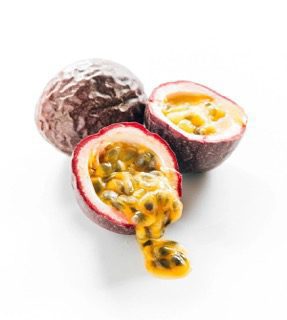

Passion fruit should not be given to dogs due to the presence of cyanide in its seeds. Completely removing the seeds is difficult, making it risky for dogs to consume.
Unripe passion fruit contains high levels of cyanogenic glycosides, which are toxic to dogs. Ripe passion fruit also contains cyanides in the seeds and skin, which can be toxic when consumed in large amounts. The seeds can also be a choking hazard and potentially cause intestinal obstruction. Dogs with digestive disorders, such as diverticulitis, should not consume passion fruit.
Passion fruit, also known as Maracuja, is a tropical fruit that originates from South America and is now commonly grown in many regions of the world. Unfortunately, passion fruit is not safe for dogs to consume due to the presence of cyanide in its seeds. Even when the seeds are removed, it can be difficult to ensure that none remain, making it too risky for dogs. While there are no benefits for dogs to consume passion fruit, there are certainly risks. Unripe fruit contains high levels of cyanogenic glycosides, which can be toxic to dogs. Ripe fruit also has cyanides in the seeds and skin, which can be toxic when consumed in large amounts and pose a choking hazard. Passion fruit is easily accessible in many grocery stores and is relatively affordable. It's important to be aware of the risks and avoid giving passion fruit to your furry friend.
If you're looking for alternative fruits that are safe for dogs to consume, consider apples or bananas. Both are low in calories and rich in vitamins and minerals that are beneficial for dogs. Avoid giving them grapes, raisins, or cherries, which can be toxic to dogs.
Have you ever given your dog passion fruit? What was your experience? It's always important to be cautious when introducing new foods to your pet's diet and to consult with a veterinarian if you have any doubts or concerns. Remember, our furry friends rely on us to keep them healthy and safe.